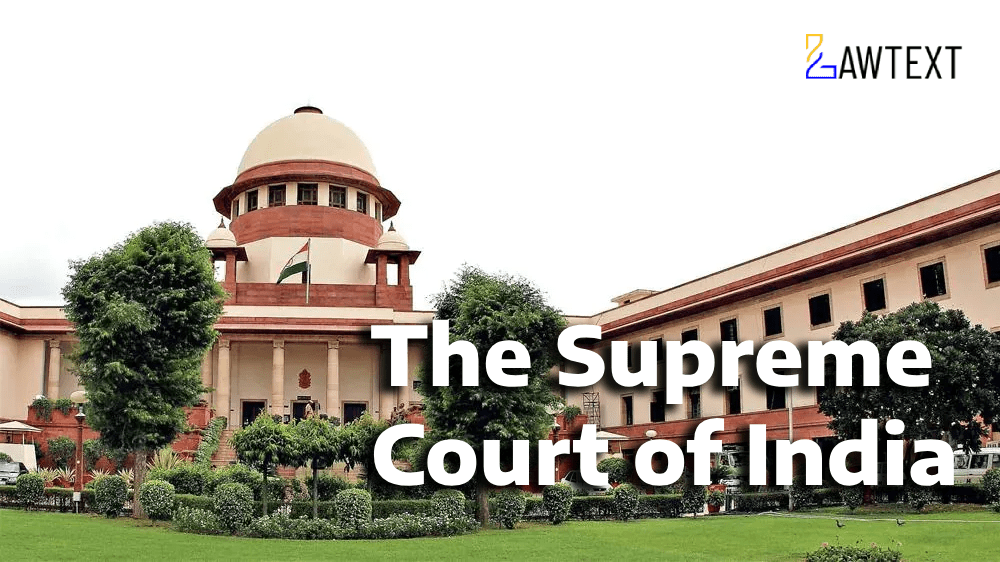Summary of Judgement
The Supreme Court of India set aside the High Court's order that invalidated surplus land proceedings under the Uttar Pradesh Imposition of Ceiling on Land Holdings Act, 1960. The Court reiterated that objections based on family settlement were already rejected in prior litigation and barred by res judicata. The State's appeal was upheld, and the authorities were directed to distribute surplus land as per the law.
1. Historical Context and Legal Framework
Paras 1-3
- Acts Discussed:
- Uttar Pradesh Imposition of Ceiling on Land Holdings Act, 1960 (Act of 1960)
- Uttar Pradesh Zamindari Abolition and Land Reforms Act, 1950
- Purpose: To achieve equitable land redistribution by declaring holdings exceeding the ceiling as surplus.
- Relevant Provisions:
- Section 9: Notice to tenure-holders to declare holdings.
- Section 10: Notice for incomplete or incorrect declarations.
- Section 5(7): Prohibition on recognizing partitions post-24.01.1971.
2. Initial Proceedings and Findings
Paras 4-5
- Key Events:
- Late Hari Shankar Tiwari’s objection based on a family settlement was dismissed by authorities in 1974.
- Surplus land of 33 Bigha 8 Biswa was identified post-hearing.
- Judicial Journey:
- District Court reduced surplus land marginally in 1975.
- High Court and Supreme Court upheld the findings, deeming family settlement irrelevant under Section 5(7).
3. Fresh Litigation – Abuse of Process
Paras 6-7
- Tactic: Respondent No. 1 (son of Hari Shankar Tiwari) filed objections in 1981, alleging lack of notice under Section 10.
- Prescribed Authority’s Role: Accepted objections and reopened surplus proceedings in 1985, relying on the family settlement previously rejected.
- Outcome: State’s appeal before Additional Commissioner was allowed, declaring earlier decisions final.
4. High Court Judgment and Supreme Court’s Intervention
Paras 8-11
- High Court Decision (2022): Held that failure to issue notices to individual family members post-settlement vitiated the process.
- Supreme Court Analysis:
- Declared the High Court erred in ignoring res judicata principles.
- Reiterated that the family settlement was deemed irrelevant and litigation already attained finality.
- Highlighted procedural impropriety by the Prescribed Authority in reopening concluded matters.
Key Ratio Decidendi:
- Principle of Res Judicata: Finality in legal proceedings prohibits re-litigation of settled matters.
- Interpretation of Section 5(7): Any post-1971 partition or decree declaring prior partition invalid is ignored for surplus calculation.
- Procedural Integrity: Actions by subordinate authorities that undermine judicial finality are impermissible.
Directives and Conclusion:
Para 12
- District Magistrate directed to take possession of surplus land and redistribute as per law.
- Supreme Court emphasized the need for accountability among administrative officers.
Acts and Sections Discussed:
-
Uttar Pradesh Imposition of Ceiling on Land Holdings Act, 1960
- Section 9: Statement submission by tenure-holders.
- Section 10: Procedure for incorrect or incomplete declarations.
- Section 5(7): Treatment of partitions post-24.01.1971.
-
Principle of Res Judicata under general legal doctrine.
Subjects:
- Land Ceiling Laws
- Family Settlements
- Res Judicata
- Abuse of Process
- Administrative Integrity
Case Title: STATE OF UTTAR PRADESH & ANR. VERSUS SURESH CHANDRA TEWARI & ORS.
Citation: 2024 LawText (SC) (12) 170
Case Number: CIVIL APPEAL NO. OF 2024 (@ SPECIAL LEAVE PETITION (CIVIL) NO.20021 OF 2022)
Date of Decision: 2024-12-17

